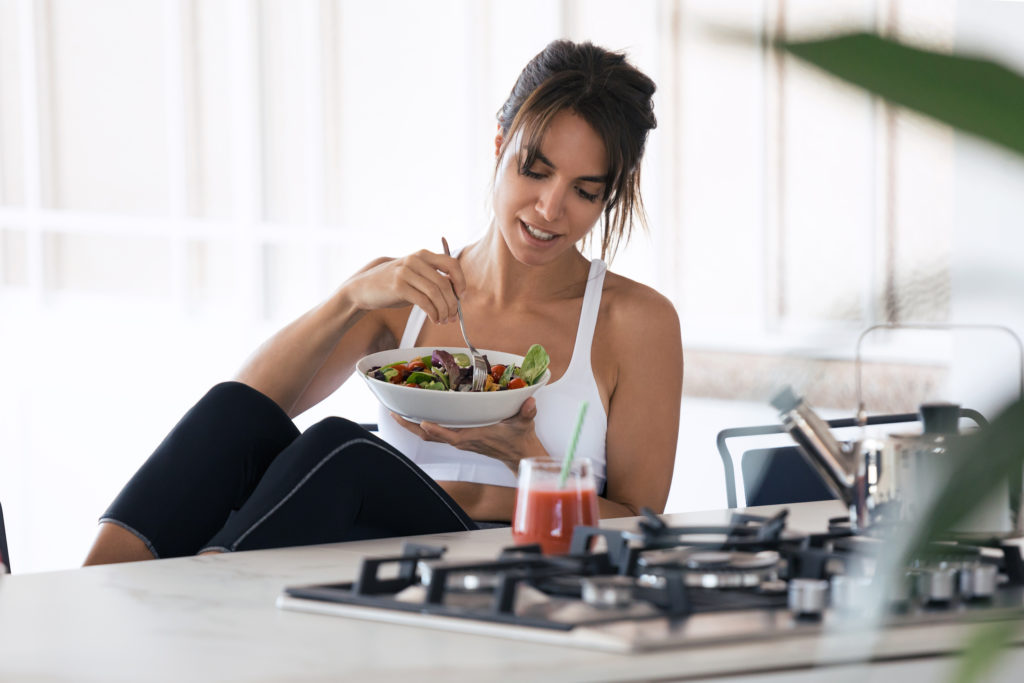Is Your Diet Worsening Your Varicose Veins & Circulation? Here’s What You Need to Know
Diet impacts every aspect of a person’s health. From brain function, energy levels, mood to vitamin deficiencies, bone strength, circulation, and more. So, with the extensive knowledge, we have about the human diet, it stands to reason that what we eat can be an arsenal against disease. And while the specific cause of varicose veins is still very much under investigation, experts know that lifestyle affects this condition and can worsen it.
One important aspect of maintaining vein health includes eating a healthy diet. So we thought we’d take a closer look at how the food you eat affects your varicose veins. Whether you are genetically predisposed or have noticed issues with circulation, how can you use your diet to help with varicose veins?
The Circulatory System and Overall Health
The circulatory system is key for daily function and overall health. This system consists of our blood vessels, heart, and blood. And, as we know, the circulatory system is responsible for delivering nutrients and oxygen to every organ and cell in our body. This delivery system plays a major role in the function of our organs and in how we feel day to day.
Our circulation is dependent on a closed-circuit system that functions very mechanically. Blood flows one direction towards the heart, gets oxygenated, then flows out of the heart in a different direction. Diet affects the function of the blood vessels, which are the major player in varicose veins. We know that some foods cause the buildup of plaque in the arteries, which causes clogging. When the vessels become clogged, blood does not flow as it should.
Foods To Improve and Maintain Problems Associated with Varicose Veins
Every person is different when it comes to dealing with varicose veins. Some patients report feeling discomfort, tiredness, and even itching; others don’t report symptoms but have visible varicose veins. Regardless of whether you are feeling symptoms or not, if you suspect you have issues with varicose veins or have a family connection, taking preemptive and proactive measures can help mitigate symptoms or slow down progression or worsening.
So what should you eat?
Here is some general advice to help you get started on a healthier diet for your circulation!
Avoid Saturated and Trans Fats
For a long time, people were led to believe that all fat was created equal. At least that seemed to be the mainstream messaging, as all our favorite foods from yogurt to ice cream switched to low fat or zero fat. The problem with that is that the body requires healthy fats as it helps with vitamin absorption and repair cell membranes. So, it’s about measuring healthy fats and avoiding the not-so-good ones.
As Harvard Health discusses, monounsaturated and polyunsaturated fats can be considered ‘good,’ while industrial-made trans fats are not so good and saturated fats fall somewhere in between. Trans fats are not as readily used anymore because of their known negative health effects. Saturated fats are found in some dairy foods and meat products. In high quantities, these types of fats can increase the risk for vascular disease.
Avoid High Levels of Sodium
Foods that are high in salt can also have a detrimental effect on circulation and overall health. It’s not that difficult to go over the recommended daily levels of salt. For example, 6-8 thin slices of deli meat can push you over the daily sodium intake.
Consider Foods like Beetroot, Ginger, & Asparagus
Eating more fruits and vegetables is generally accepted as good advice to improve diet and vitamin intake, but there are a few foods that have shown to be particularly effective for circulation and their anti-inflammatory properties. Some of these include:
- Beetroot: This can be an effective food source. It contains Betacyanin and is known as a ‘functional food’ because of its effects in cardiovascular health. According to recent studies, beetroot has shown clinical improvement in conditions such as hypertension, atherosclerosis, diabetes, and even dementia. Its high nitrate content helps the reduction of nitric oxide.
- Ginger: This food has been used in India and China as part of traditional medicine for generations. In human and animal studies, this tangy root has been shown to reduce high blood pressure and improve circulation. The good news is that ginger can be purchased relatively cheaply in a grocery or whole foods store and can be digested in several ways, including by slicing it and placing it in boiling water.
- Blackberries: This tasty little fruit contains a compound called rutin, which is antioxidant and anti-inflammatory.
Let Us Take Care of Your Veins!
While adjusting diet to help with circulatory problems is certainly a great starting point. For some people, the symptoms or issues related to varicose veins or venous insufficiency require some more focused attention. That’s where we come in!
At El Paso Varicose Veins, we look at your medical history, lifestyle, and symptoms to assess the right protocol for improving your vein health or treating problems such as varicose veins, spider veins, and other vein-related issues. Want to learn more about treating varicose veins? Call us today for vein treatment in El Paso.

